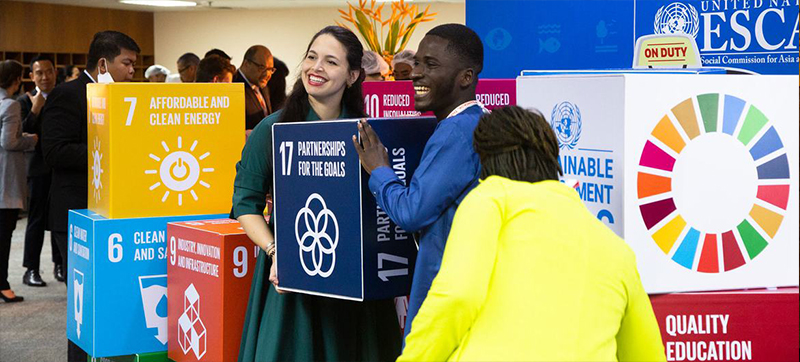Cooperation across the Global South, key to reaching SDGs

To highlight the importance of ongoing cooperation between countries of the Global South, the UN commemorated its annual Day for South-South Cooperation on Tuesday.
This year’s official theme is “Solidarity, Equity, and Partnership: Unlocking South-South Cooperation to Achieve the SDGs.”
South-South cooperation is a manifestation of solidarity contributing to national well-being, national and collective self-reliance, and the attainment of internationally agreed development goals, including the 2030 Agenda for Sustainable Development.
Coming just ahead of the two-day SDG Summit, the commemoration is an opportunity for the Global South to emphasize the needs of various regions and accelerate practical action towards sustainable development targets.
“In our world of deeply connected challenges, South-South cooperation plays a vital role in shaping a brighter future,” said UN Secretary-General António
Guterres.
“The United Nations Day for South-South Cooperation is a powerful reminder that when nations unite, they can overcome obstacles and accelerate sustainable development.”
He said it was “only together” that we can forge a world of shared prosperity, “where cooperation knows no borders.”
Collaborative spirit
Examples of cooperation among the Global South include Cuba's support combatting Ebola in West Africa, the Republic of Congo assisting family farming and school feeding programmes in Brazil, and UNESCO facilitating exchanges between the Marshall Islands, Solomon Islands, Fiji, Samoa, Tonga, Tuvalu, and Vanuatu to improve the teaching capacity of educators.
To boost this collaborative spirit, the UN Office for South-South Cooperation (UNOSSC), promotes both South-South and triangular cooperation.
Triangular cooperation is a collaboration in which donor countries and multilateral organizations facilitate South-South initiatives through funding, training, management, and providing technological systems, in addition to other forms of support.
Collective self-reliance
South-South cooperation is conducted through a broad framework of collaboration among countries of the Global South in the political, economic, social, cultural, environmental, and technical domains.
Through South-South collaboration, developing countries share knowledge, skills, expertise, and resources to meet their development goals through coordinated efforts.
“From climate action to poverty eradication, from healthcare to education, from trade to digitalisation, solidarity and strong partnerships between developing countries can pave the way for a more equitable and sustainable world,” said Mr. Guterres.
“As we mark the United Nations Day for South-South Cooperation, let us recognize this form of collaboration as an essential catalyst for change, embodying solidarity, innovation, and mutual support,” concluded the Secretary-General.



